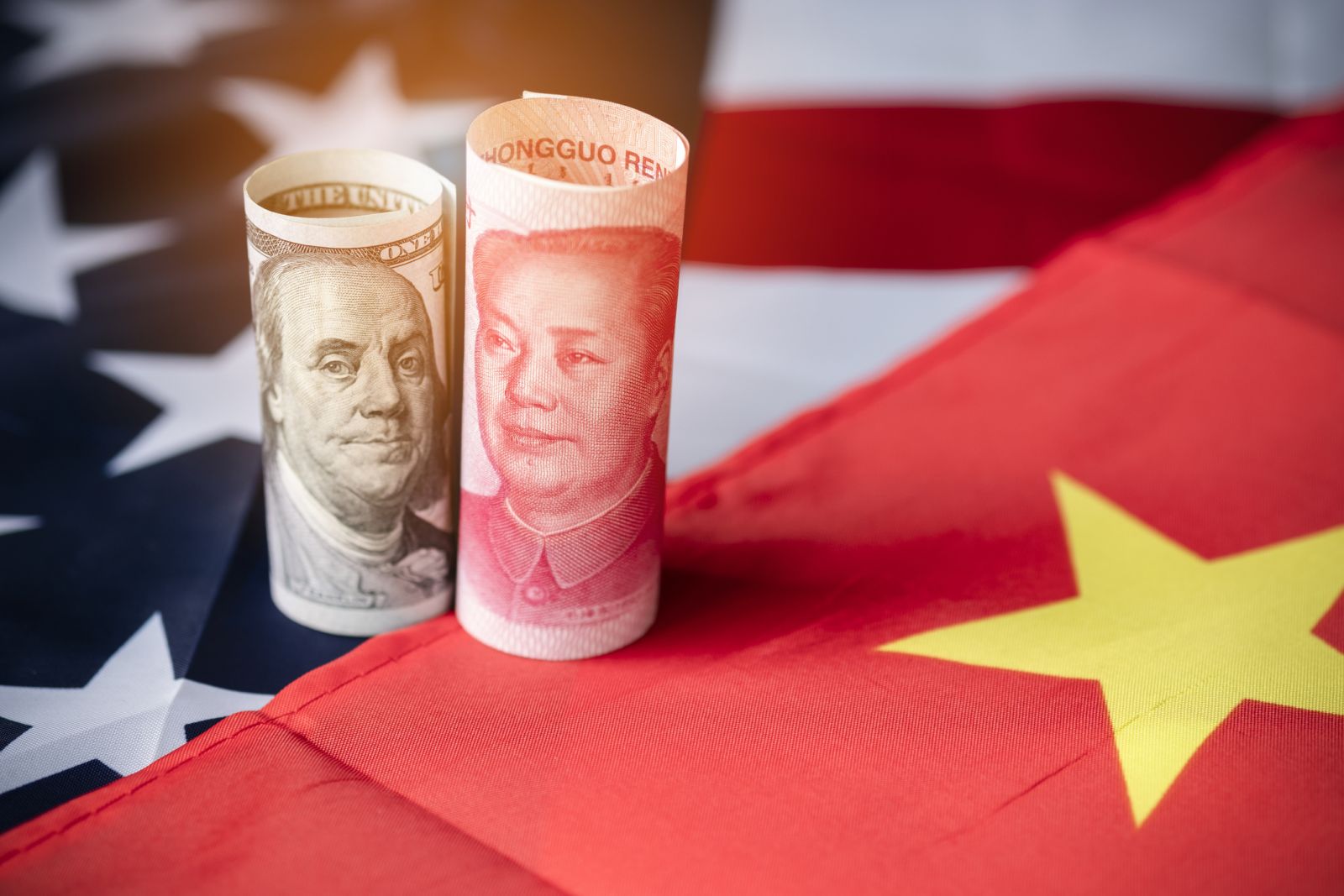This Dividend-Paying AI Stock Is a Buy Despite the U.S.-China Trade War

While President Donald Trump has delayed levying tariffs on Canada and Mexico, the U.S. has officially implemented a 10% tariff on all Chinese imports. Just as we saw in Trump’s first term, China has responded with retaliatory tariffs, stoking fears of a trade war.
The trade war during Trump’s first presidential term led to a selloff in both Chinese and U.S. markets amid fears of business disruption and higher costs. There are several other dimensions to the U.S.-China rivalry, especially concerning global technology and artificial intelligence (AI) dominance.
U.S.-China AI War
The AI war is on full display after Chinese AI startup DeepSeek released its low-cost AI model. While China’s prowess in manufacturing is well-known, DeepSeek claims to have developed its AI model at a fraction of the cost. Trump has already termed DeepSeek’s AI model a “wakeup call” for U.S. companies. And following DeepSeek, Chinese e-commerce giant Alibaba (BABA) announced that its Qwen 2.5-Max AI model performed better than not only DeepSeek-V3, but also OpenAI’s GPT-4o on several benchmarks.

The timing of Alibaba’s Qwen 2.5-Max release was quite surprising as it came on the first day of the Chinese Lunar New Year holiday – a period when most Chinese people are on a break and the country’s industrial activity takes a backseat during the week-long celebrations. It was, however, an indication of how companies are scrambling to prove that they are very much in the AI race.
4 Reasons to Buy Alibaba Stock
As expected, BABA shares spiked following the reports of its new AI model. While China’s structural slowdown, the U.S.-China trade war, and domestic competitors eating into its market share are headwinds for BABA, I find the stock to be a buy. Let’s discuss why.
Alibaba’s Growth Is Expected to Rebound: As China’s stimulus trickles down to the economy, its country’s retail sales should also pick up. Analysts expect Alibaba’s sales to grow by 8.1% year-over-year in the next fiscal year which will end in March 2026 while its per-share earnings are expected to rise by 18%.

www.barchart.com - AI and Cloud Business Might Grow at a Fast Pace: Alibaba’s cloud business continues to benefit from growing AI spending in China. The company might also see a valuation rerating as it advances its AI efforts.
- Regulatory Headwinds Are in the Rear-View Mirror: Alibaba was among the worst affected by China’s tech crackdown. However, the worst is behind it and if anything, I would expect the country to back its burgeoning tech sector amid the AI war with the U.S.
- Business Restructuring: Over the long term, Alibaba is a play on business restructuring – potentially listing its six business segments separately – which would unlock value. While that process is on hold for now due to U.S. chip export restrictions, Alibaba is expected to eventually return to its plans. On a similar note, while the company does not have any near-term plans to list its fintech subsidiary Ant Financial, it might consider doing so in the future.
BABA Stock Forecast
Sell-side analysts are quite bullish on Alibaba. Of the 19 analysts actively covering the stock, 17 have rated it a “Strong Buy,” while the remaining two rate BABA as a “Hold” or some equivalent. Alibaba’s mean target price of $120.16 is almost 22% higher than the Feb. 3 closing price, while the Street-high target price of $145 is nearly 47% higher.

Alibaba Also Pays a Dividend
While most AI plays either don’t pay a dividend or have meager payouts, Alibaba announced an annual dividend of $1 per American Depositary Receipt (ADR) last year which transforms into a yield of over 1%. While not too high, the yield is better than most U.S.-based tech giants including Apple (AAPL), Meta Platforms (META), and Nvidia (NVDA).
Moreover, Alibaba investors might also receive a special dividend this year. Last year, the company paid an extra dividend of $0.66 per share which it attributed to “proceeds from disposition of certain financial investments.” Alibaba has disposed of some of its non-core assets over the last couple of months and might top up this year’s dividend with a special payout as it did in 2024.
All said, while the U.S.-China trade war is a negative for the Chinese economy, at less than 11x its expected earnings over the next 12 months, BABA looks like a cheap AI play with attractive risk-reward, especially for those investors who can digest the near-term volatility.
On the date of publication, Mohit Oberoi had a position in: AAPL , BABA , NVDA , META . All information and data in this article is solely for informational purposes. For more information please view the Barchart Disclosure Policy here.